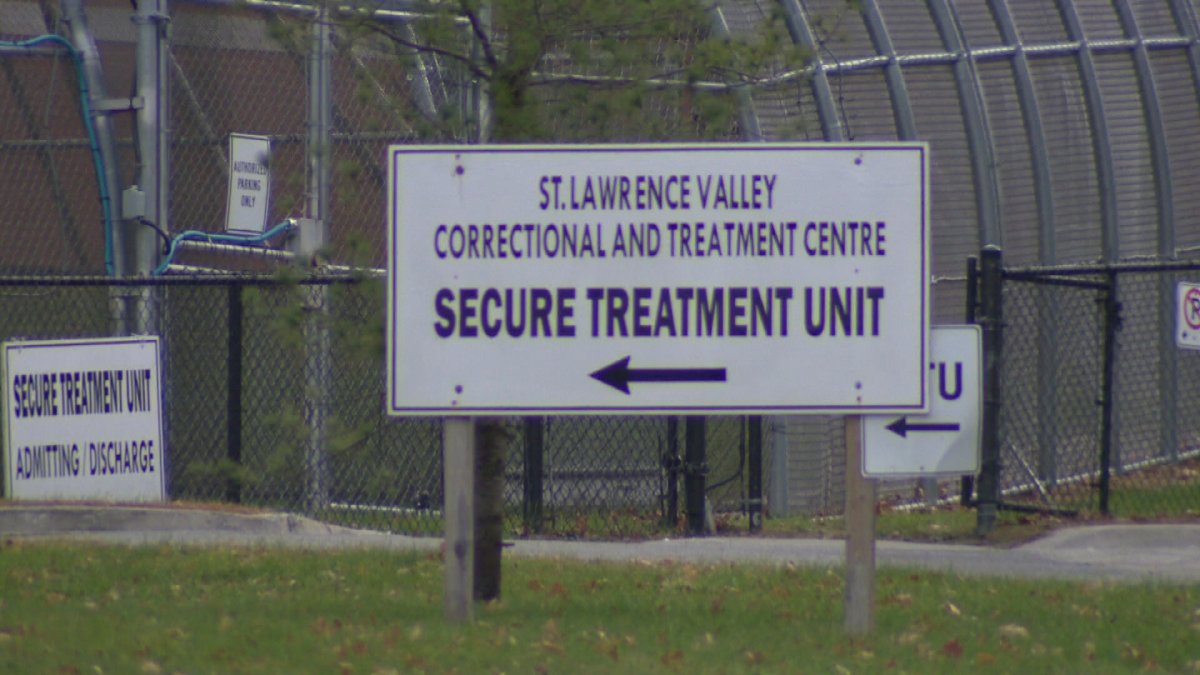Last May, as Global News published an investigation showing Canada’s sickest inmates are held in its deadliest prisons, Public Safety Minister Steven Blaney pledged to take seriously the treatment of mentally ill inmates – starting with a two-bed pilot project at a facility designed for offenders with severe mental illness.

More than six months later, that two-bed pilot project has yet to materialize. The federal government, for its part, points to an interim agreement for one woman as progress in itself.
INVESTIGATION: Death Behind Bars
There’s now one federal female inmate kept at the Royal Ottawa’s Brockville Mental Health Centre’s Forensic Treatment Unit: Marlene Carter has been there under an interim agreement since a failed attempt by the Crown to have her designated a dangerous offender – a ruling the Crown is now trying to appeal.
A judge found Carter’s condition was getting much worse in the Saskatoon psychiatric prison where she spent much of five years tied down to a bed, board or chair – often for such long periods her muscles atrophied from disuse. Carter, who has tried to kill herself multiple times and would smash her skull against whatever hard surface was closest, is doing much better since her July transfer to the Brockville, Ont. facility, her lawyer says.
A.G. Ahmed, Associate Chief of Psychiatry at the Royal Ottawa’s Forensics Programs in Brockville and Ottawa, says they’re still waiting for a two-bed agreement with Correctional Services of Canada to be finalized.
“To be candid … we’re still in the contract drafting stages. We’re still waiting,” Ahmed said.
“It takes time. … It’s a question of looking at certain definitions – of whether the patient can stay here, definition of beds, are they going to be penitentiary beds? All those.”
The uncertainty puts a significant strain on the centre’s resources, Ahmed said.
“We don’t have beds that we can use willy-nilly. We are trying to make do. … These are individuals who are very, very difficult to manage. I mean, this is a big risk we’re taking.”
But a Corrections spokesperson indicated in an email that, apart from the “interim agreement” for Carter, they could be waiting a while for a formalized program.
“CSC is currently in a partnership with the Royal Ottawa Health Care Group and an interim arrangement was put into place in July 2014. By using these services, CSC is currently piloting this project,” Sara Parkes wrote.
“CSC continues to work with the Royal Ottawa Health Care Group to secure a longer term arrangement for guaranteed access to two beds in the Integrated Forensic Program located at the Brockville Mental Health Centre Forensic Treatment Unit.”
In the meantime, the federal government has yet to respond to more than 100 recommendations made in the wake of Ashley Smith’s death. While Blaney indicated this response would be forthcoming by next month, his department has since been much more equivocal about that time frame.
The small number of offenders involved also makes it tougher to make much of an impact in an area that even Blaney has acknowledged is a problem that needs to be addressed.
“You need a critical mass to say you’re developing specialized programs,” Ahmed said.
“But what do I know? I’m just a clinician.”
Studies in Canada and the U.S. have indicated people with mental illness, if they don’t get proper treatment, emerge from prison settings significantly more likely to reoffend – especially if they’re kept in solitary confinement. But despite calls both internationally and within Canada to stop keeping sick people in solitary, the federal government continues to segregate its sickest inmates.
Updated 5:30 p.m. Thursday, Nov. 13 to clarify The Royal runs Brockville’s Forensic Treatment Unit, adjacent to the Secure Treatment Unit at the provincially run St. Lawrence Correctional Facility. We regret the confusion.





Comments